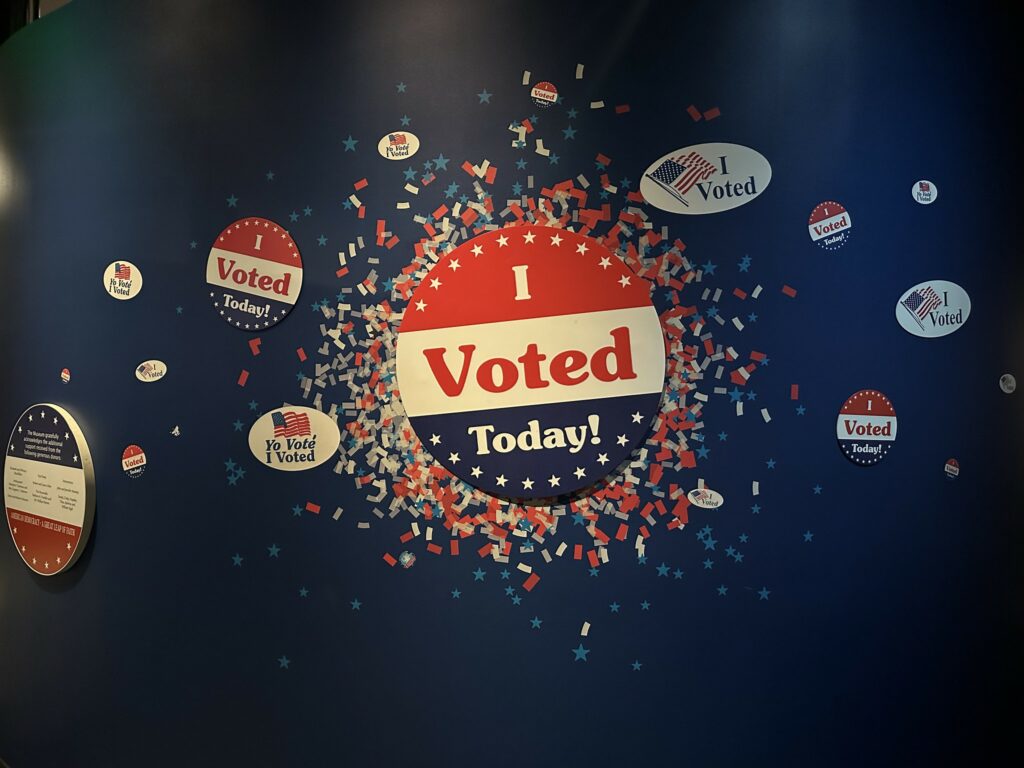Building Blocks of Democratic Theory
Elements of democratic theory: minority edition.

A tweet recently reminded me of a previous post, which in turn inspired this very simple post. Some of the comments in the post inspired the following. This is also an attempt to create an irregular series underscoring elements of democratic theory (like The “A Republic, not a Democracy” Library or the Democracy and Institutional Design series)
One area of discussion and debate in regard to democratic governance (i.e, self-government by citizens) is the issue of majority rule and minority rights. There is often confusion on this matter. I do not purport to comprehensively cover the subject here, but to simply provide some basics.
Definitionally, democracy ought to be predominantly a system that takes majority preferences more seriously than it does minority preferences. Majority rule, in the main, is a hallmark of democracy. However, this does not mean that democracy is simply the iron rule of 50%+1.
I would argue that as a general matter, majority rule out to be the basic foundation for decision-making, such as legislation. Likewise, the guiding principle of representation should privilege the majority over the minority (and the issue of representativeness being its own issue). However, any democratic system must have protections for minority (indeed, individual) rights.
Protections for minority rights (e.g., rights to freedom of religion, speech, and the press) are requisite for democracy. Allowing the majority to suppress views and beliefs that it does not like (e.g., a minority religious sect) is, definitionally, anti-democratic. Democracy does not mean unfettered majority rule.
Exactly how those rights are created and protected (and how far they go*) is system-dependent.
Minority rule, however, defined as the numeric minority of the population having the ability to govern is antithetical to democracy.**
Side note: parliamentary systems that sometimes have minority governments (i.e., a party, or coalition of parties, with less than a majority of seats is allowed to form the government) still require the acquiesce of a majority in the parliament to allow that government to form (usually through some kind of agreement with parties not in the coalition). Note that even in such circumstances, a majority of votes is needed to pass legislation.
*All rights have some level of limitations. A country may have extensive freedom to worship rights, but that doesn’t mean that ritual human sacrifice has to be allowed to conform to the notion of freedom of religion, to pick an extreme example.
**Sometimes democratic systems have anti-majoritarian features, although the US has more than most. There is no succinct way to address save to note it. A broad example would be that constitutional courts can often act in opposition ti majority sentiment, but that should be connected to the minority rights issue. Further, the way those institutions are appointed is usually not linked to direct majoritarian actions, but those who make the appointments should be linked to majority assent. The degree to which they are not so linked (as one could argue is the case with SCOTUS), is democratically problematic.






Protections of minority rights granted by whom? — the majority of course.
The problem crops up when the majority decides to withdraw minority rights because – BS reasons.
The Founding Fathers planted a bomb in the Constitution. Donald Trump [among others, IMHO] has lit the fuse.
I’d originally thought I would post this on the Forum, but this–or the parallel “Rules Matter” post–seems like a better choice for an interesting article from the current issue of Mother Jones.
(And so much for “you get more conservative as you get older.” Forty years ago, I cancelled my subscription mid-year because the magazine was too radical and too conspiracy minded for me.) And, apologies to Bob@Youngstown, but Berman appears to be building an argument (which I have not finished reading yet) for the Constitution being more of a minority rule document than we have understood it to be through our present system of teaching Social Studies in schools.
It seems to me that the key to protecting minority rights is the very anti-conservative principle that the law, while reflecting majoritarian views, should nevertheless be equally binding on all and equally protective of all. That has never been true in the US, but we at least gave it lip service as an aspirational goal. The extreme danger of the current moment is a substantial power bloc that rejects this principle explicitly, to the applause of large crowds, and has seeded the Supreme Court with willing accomplices.
@Just nutha ignint cracker:
The Framers were overwhelmingly elitists with an Aristotlean fear of democracy, which they considered rule by the mob. But the Senate and Electoral College were compromises necessary to shift the country from a confederal system wherein all states, regardless of population, had equal say and a federal union. The small states had an absolute veto and simply weren’t going to give up their power without substantial concessions.
@James Joyner: I don’t think anyone is arguing as to the motives of the Founders for their decisions; although if Berman’s bias is Marxist, he might well be making a covert/not so covert accusation about their motives in the quotations from them that he makes down line*. The sentence you quoted is in the position where evidence is presented in well-constructed paragraphs. I think the key point is that “[b]ut as the United States has democratized in the centuries since, extending the vote and many other rights to formerly disenfranchised communities, the antidemocratic features built into the Constitution have become even more pronounced, to the point that they are threatening the survival of representative government in America.” Why they decided what they did pales in comparison to the downstream effect.
*At one point, he has John Adams declaring a worst-case scenario where “debts would be abolished first [sort of like in the time of Jubilee in Israel in that religious book he liked so much]; taxes laid heavy on the rich and not at all on the others, and at last, a downright equal division of everything…” (Those fiends 🙁 )